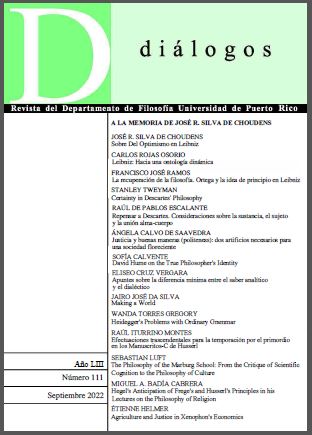Abstract
Heidegger constantly claimed that ordinary grammar is inadequate for one reason or another. In this article, I analyze his different views of grammar across three stages of his philosophy—from his early ventures in pure logic, through his project of fundamental ontology and existential phenomenology, to his later reflections in terms of beyng-historical thinking (seynsgeschichtliches Denken). I claim that his appropriations of the Aristotelian logos, particularly in terms of its supposedly original functions, is a constant in his concept of language. The key to his concepts of grammar lies in the synthesis of logos, which basically involves assembling something as something. My analysis shows how Heidegger’s distinctions between a primordial synthesis and its allegedly derivative and defective forms are applied in his critiques of ordinary grammar throughout the development of his thought. I also discuss the problematic nature of Heidegger’s own critiques and prescriptions regarding grammar, which I argue is exacerbated in his later philosophy.

This work is licensed under a Creative Commons Attribution-NonCommercial 4.0 International License.

